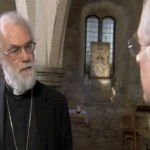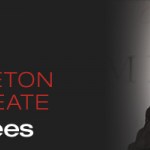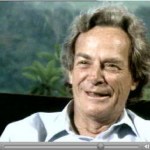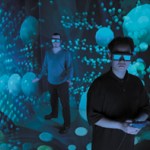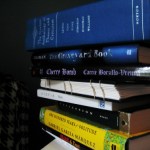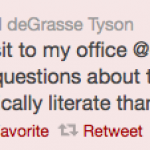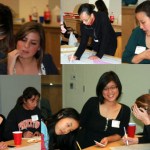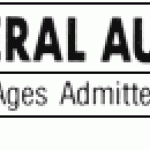science communication
My recent post "The Royal Wedding, A Thoughtful Theologian and the Faith/Science Conundrum" stirred up, not surprisingly, some thoughtful and not so thoughtful (or respectful) readers' comments. Some readers mistook my article as an endorsement of Archbishop Williams' writings - it was not. Sadly, readers missed the opportunity to wish the happy couple a bright future.
I would like to share an antidote, prompted in a way that only bathroom wall graffiti could provide.
We've all seen them - those often profane, ludicrous scribbles on bathroom walls. Today I saw the following (Was it…
Source.
On April 29, Prince William and Kate Middleton will exchange wedding vows with Dr. Rowan Williams, Archbishop of Canterbury presiding. More than two billion viewers are expected to witness the event with well wishes for this handsome couple, with Britain's future in mind. I wish them all the best, with opportunities and joy that they cannot even imagine today.
Archbishop Williams is a learned theologian but is not without controversy with his statements about the 9/11 attacks, Muslims and British law. My focus here, however, is to explore his thoughts about faith and science. I…
I'm working on putting together a resource sheet for various people (teachers, professors, graduate students, etc) that will help them find psychology-related resources on the web.
And I can use your help. To start with, I'm compiling as extensive a list as is reasonably possible of psychology and related blogs.
Here is a starter list, that I put together in about five minutes. What other blogs do you read, that I don't have listed here, that belong in the list? The criteria are (1) they're good, (2) they do research blogging (though they need not exclusively do research blogging, and they…
"Man"
The Tennessee General Assembly overwhelming passed Bill 368 yesterday (April 7), stating:
Teachers, Principals and School Personnel - As introduced, protects a teacher from discipline for teaching scientific subjects in an objective manner.
At first blush, it sounds reasonable. Is it?
From ScienceInsider:
In addition to AAAS {American Association for the Advancement of Science}, the Tennessee Science Teachers Association, the American Civil Liberties Union of Tennessee, and the National Center for Science Education (NCSE) have expressed their opposition to the bill.
"There has…
The winner of the Templeton Prize (1 million British pounds) was announced today. Is this a turning point for Templeton, or more of the same?
What is the purpose of this award?
The Templeton Prize honors a living person who has made an exceptional contribution to affirming life's spiritual dimension, whether through insight, discovery, or practical works.
According to The Guardian:
Previous winners have included Mother Theresa, the US evangelist Billy Graham, and last year, a molecular biologist and former Dominican priest, Francisco Ayala, who advised Bill Clinton and helped overturn…
Can You Understand Our World Without Mathematics?
I could grapple with this question, but I'll let physicist Richard Feynman of the Manhattan Project and Nobel Prize winner in Physics, take it on.
This video {watch it here} was graciously shared by Sir Harold Kroto, excerpted from the BBC when he did a presentation for them {credit: BBC Horizon and producer Chris Sykes.}
I encourage you to watch this brief video. I find Dr. Feynman's perspective particularly refreshing after viewing a polar opposite, dismissive view of science and mathematics from former U.S. Senate Majority Leader Trent…
Find out what Congresswoman Michele Bachmann has to say about the weekly Prayer Meetings taking place in Room 219 of the U.S Capital. Also, her perspective of the sacrifices and faith of our Founding Fathers is sure to stir your heart. Find out more by visiting The Congressional Prayer Caucus Foundation website at www.findroom219.com.
Since the national American Chemical Society meeting last week, I've had an ongoing dialogue with Sir Harold Kroto about his insightful seminar "Science, Anti-Science and Survival." He described the "power of irrationality" as one of the greatest challenges of…
This is a glimpse into the future of 3D technology, utterly fascinating.
From PopSci:
A new, truly 360-degree 3-D display has been developed by researchers at Osaka University. The fog display is created by three projectors each beaming a different image into a column of thin fog, making the resulting image appear 3-dimensional from all angles. This technique means that viewers can physically walk around the display to see it from different vantage points without losing the 3-D effect.
My colleagues at Kean University have been using CAVE⢠Virtual Reality for their research and teaching,…
I am off traveling again so the posting will be quiet for a while and the comments unattended for a couple of days. So be nice and don't forget three or more links lands you in the "unapproved" queue.
Before I go, I thought I would share the YouTube below that came to my attention via a "friend" request. I am a big fan of Climate Crocks and a couple of other climate YouTubers but this is quite different. It is thin on science but very energetic, young and slick, I can't help but think it is a very good approach because after all, we are in a PR battle not a scientifc one.
What do people…
Welcome to part 3 of the Science Blogging 101 series. You can find part 1 here, in which I discussed my own experiences with blogging, and part 2 here, which I discussed some of the big questions regarding audience, purpose, and so forth.
How do you balance blogging with the rest of your work? Do you see it as an extension or part of what you already do in keeping up with the literature or do you just enjoy blogging?
Well, I certainly enjoy blogging, otherwise I wouldn't do it. That said, blogging about research is a fantastic way to keep up on the literature. I read through (or, at least…
Astrophysicist Neil DeGrasse Tyson has made quite an extraordinary observation about the controversial actor Charlie Sheen - did you know that Mr. Sheen is "is scientifically more literate than most"?
Given that one of my primary goals is to enhance public literacy about science and technology, such a statement - well, bothers me. I'm not sure which to question first - the judgment of Neil DeGrasse Tyson or the "scientific literacy" of a troubled albeit talented comedian/actor. Where does one even begin?
From my colleague Sheril Kirshenbaum, author of "The Science of Kissing":
A Drug…
Source: "Girls As Inventors," The Huffington Post on the MIT Media Lifelong Kindergarten Group.
While science and technology may be complex and daunting, one thing is quite clear: we need more women to drive innovation and to provide different insights and perspectives compared to men. Tomorrow, March 1st at 11 am EST, The Dow Chemical Company and Scientific American are hosting a Virtual Conference to Engage Scientific Thought Leaders on the Future of Women in Chemistry.
I invite you to listen, learn and add your voice.
According to the website:
60 speakers. 60 minutes.
60 insightful…
Part 2 of the n00b Science Blogging 101 series concerns the big questions of blogging: audience, purpose, and so on. You can find part 1 here, in which I discussed my own experiences with blogging to provide adequate context for this and the remaining posts in the series.
What audience do you have in mind when you write and why? Are you writing to people already interested in science, or do you also want to get people interested in science?
This is really two questions. The first concerns who reads this blog, and the second concerns who I wrote this blog for, and the second question is far…
Earlier today, I had the pleasure of speaking via Skype with Dan Simons's graduate-level science writing class. We talked about the ins and outs of academic blogging, and the nature and ecosystem of science communication online, and the students asked some terrific questions.
I had asked Dan to ask his students to compile some questions in advance, so that I might at least pretend to be prepared, and the questions they sent were so good, that I've decided to commit my answers to the relative permanence of the sciblogosphere. (Also, there was good feedback to a similar post that I wrote…
If you're plugged into the science blogtwitosphere, then you surely know that the topic of women science bloggers has been written about extensively. Rather than re-hash what many others have said, I'll direct you to these posts by Kate Clancy and Daniel Lende. Then, late last night, Ed Yong wrote a post highlighting a handful of blogs he reads that happen to be penned (typed?) by science writers who happen to possess two X chromosomes. I also noticed that of all the names and blogs that Ed listed, only one was new to me. Perhaps this is because I'm well-plugged-in to the sciblogtwitosphere,…
Photo source.
Kisses are a better fate than wisdom.
{e. e. cummings}
Just in time for Valentine's Day! The Science of Kissing is Everywhere. {NPR, NBC's The Today Show, Time, Newsday...}
Kissing is one of the most intimate things we do. What does it mean?
This post is worth bringing back for Valentine's Day!
A private act, it embodies romanticism, friendship, parental safe harbor as a child drifts into sleep, a casual greeting or whimsical play. Kissing can have wildly different meanings, depending upon context, timing and the partners, ranging from innocent to illicit. Kissing is…
Is kissing unique to humans? Why do we do it? What is its biological role, with our spouse, our children, our friends and family? {I can't imagine saying goodnight to my children without a peck on their foreheads or cheek - why am I compelled to do so?}
These are questions that researcher and science journalist Sheril Kirshenbaum addresses in her newly released book "The Science of Kissing - What Our Lips Are Telling Us" (Grand Central Publishing, January 2011.)
While this book has already been reviewed by the press, the publisher has invited me to write a review for ScienceBlogs, from…
The first proper session I attended at Science Online was I-wish-my-science-teachers-had-been-like Stacy Baker's workshop on Prezi. Despite some issues with the hotel wifi, it was a fantastic session, and I learned quite a bit. Clearly, there are some things better suited to Keynote/Powerpoint, and some presentations perhaps better suited to Prezi (just as they are still some types of presentations best suited to whiteboards or chalkboards).
I think Prezi can be really effective for teaching part-whole relationships, and the zooming tool can be really useful for, for example, getting deeper…
I'm not sure exactly how, but somewhere between the lemurs, the books, the dinners, and the ridiculously short sleep sessions that I encountered at Science Online, I managed to learn quite a bit from many of those science writers to whose level of awesomeness I aspire, and am consequently left with a handful of scattered thoughts.
Here is the first set of those scattered thoughts. Comments are, as always, welcomed and appreciated.
At the first of two sessions that I helped co-moderate, we discussed ways for the more established science writers to help support new talent. There is a bit of a…
Math is boring. We hear that every day. But there are exceptions. Consider Sir Isaac Newton. He matriculated at Trinity College at the University of Cambridge in 1661, became a Fellow in 1667, and created the "Newtonian" branch of physics. But many may not be aware that he was a master doodler while sitting in math class.
A number of years ago, I visited the University of Cambridge library, and happened across an extraordinary display. It contained class notes of Sir Isaac Newton, taken while he was an undergraduate student. The notes were taken in meticulous handwriting, with…
